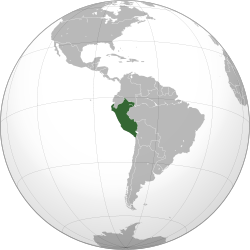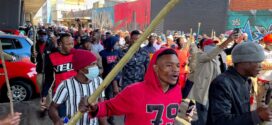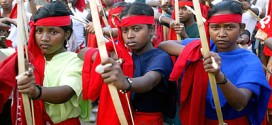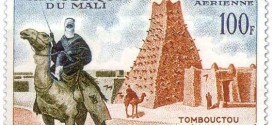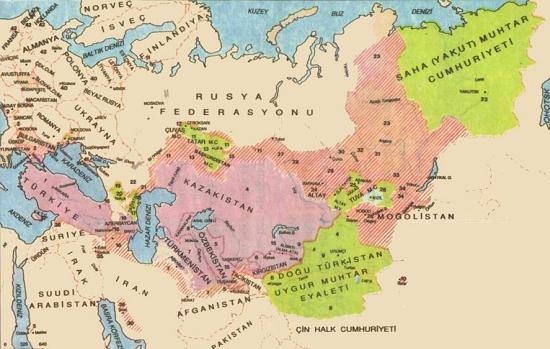Contrary to what some people might think, the Amazon basin does not only lie in Brazil, but it also spreads over several countries, including Peru. According to the English Wikipedia, around 60% of Peru belongs to this geographical region (an area equivalent to that of Italy and Spain combined!). On 14 April 2011, Eduardo Nayap Kinin became the first indigenous person from the Amazon basin to be elected to the Peruvian parliament. Since Peru gained independence in 1821, there has never been an indigenous representative from the Amazon region. Finally, indigenous peoples have found a voice in this part of the world.
Who are the Aborigines of Northwestern Amazonia?
Eduardo Nayap Kinin is a member of the Aguaruna ethnic group, which belongs to the Jivaro (or Shuar) Indians. The Jivaro became famous mainly through their head-hunting tradition and the shrunken heads made in this context. This tradition led to the Jivaro being perceived as inhumane barbarians and being denied a political voice in the state. However, it is interesting to consider how the practice of headhunting was affected by the European conquest of the Americas.
The Fate of the Head Hunters
The Jivaro had their own cosmology and war rituals. According to this, the spirit of a dead warrior still had power. During the process of creating shrunken heads, the eyes were closed and the mouth was sewn shut to tame the spirit of the dead warrior. The Jivaros also believed that the warrior’s power passed to the victor. It is reasonable to assume that the Jivaros seldom waged war, meaning that shrunken heads were only taken on rare occasions. A comparison can be drawn with the ritual of scalping practised by some indigenous tribes in North America. This was also originally limited to rare war events. However, through contact with the Europeans, headhunting escalated. Why?
The arrival of the Europeans brought new diseases to America, such as measles, to which the indigenous population was exposed and vulnerable. According to the Jivaro belief system, diseases were transmitted by spirits. The proliferation of these previously unknown diseases was difficult to understand, and neighbouring tribes were suspected of being responsible for them because it was thought that they had sent evil spirits. For example, if a child died of measles, the neighbours would be accused. This debt had to be repaid through a system of retribution. This resulted in a significant increase in small, bloody, deadly conflicts. Meanwhile, the Europeans developed an interest in the curious shrunken heads and began to collect them. The implications of this are easy to imagine. A brisk trade in shrunken heads began, and today these heads are exhibited in many museums. Non-Jivaros, mostly Mestizos living in the Jivaro settlement area, fuelled the cycle of violence by acquiring heads. This escalated the head-hunting. Consequently, the social fabric of the Jivaro people became increasingly unstable.
Tristes Tropiques
The term ‘primitive wealth’ has been coined to describe many ethnic groups in Amazonia. This means that the people lived simply but in abundance, as the resources necessary for a pleasant life were available in large quantities. However, the clash between the indigenous people and the Europeans brought this system to an end. Disease and increasing warfare destroyed the hereditary system. The fact that this was initiated by contact with Europeans is often overlooked. Consequently, the Jivaros struggled to gain a political voice in the emerging nation-states of Ecuador and Peru, as they were considered “savages” and, as a minority, were deemed insignificant.
However, in 2011, Amazonian indigenous peoples in Peru took a significant step towards reclaiming their place in the world!
 Dorsum – The Ethnopolitcal Blog Worldwide Ethnopolitical Analyses
Dorsum – The Ethnopolitcal Blog Worldwide Ethnopolitical Analyses
